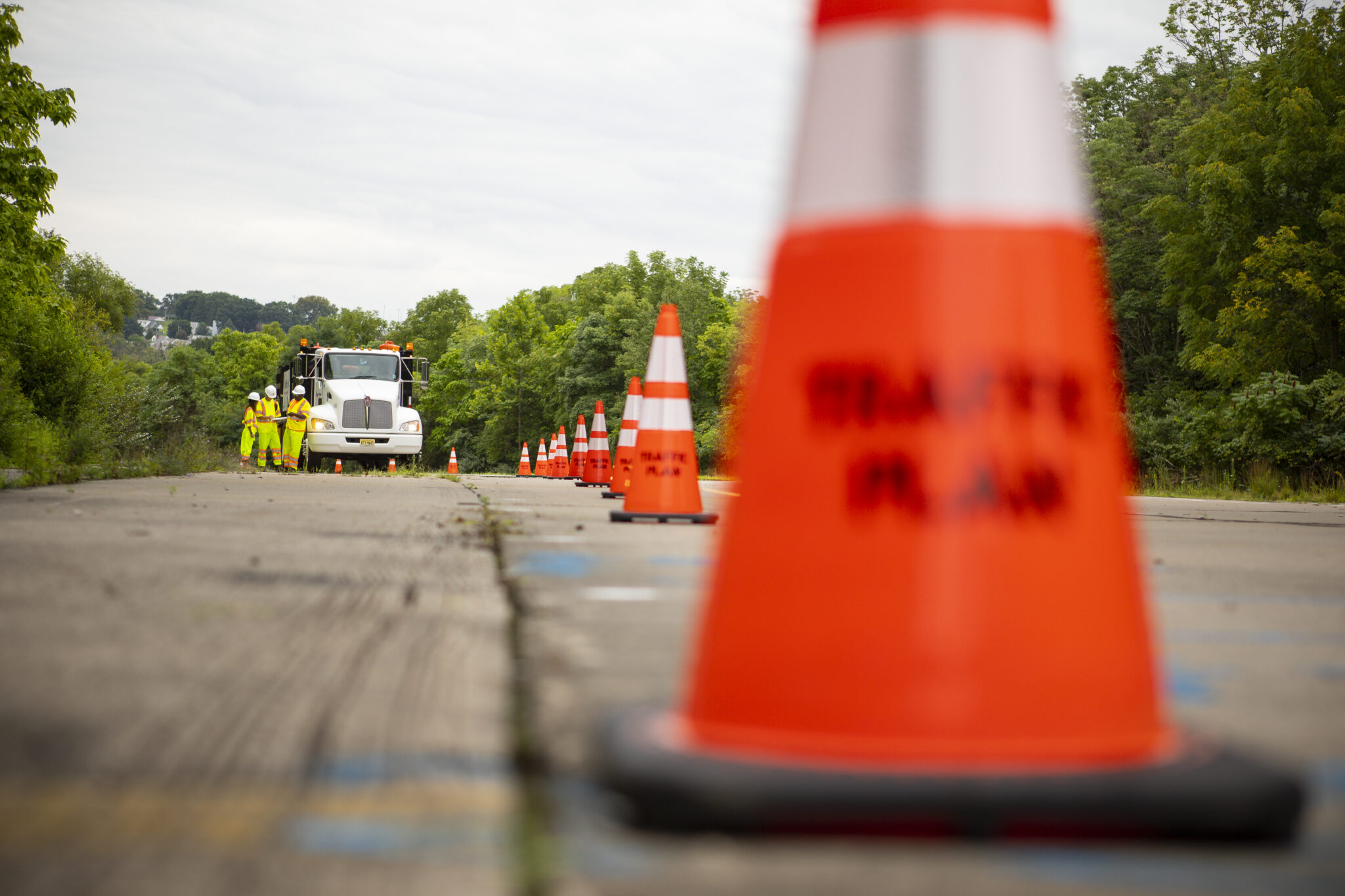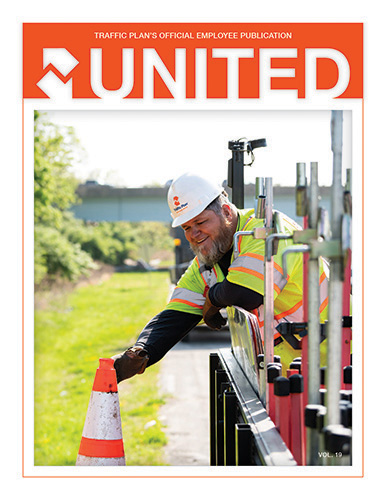
Sometimes getting stuck in a traffic jam can feel like a cruel joke, but the economic consequences are no laughing matter. Inadequate traffic control in construction zones can cause significant financial costs. The effects on the construction company, traveling public, and local community can range from additional maintenance expenses to lost productivity, increased fuel consumption, higher pollution rates, and negative impacts on local businesses. In addition, delays can foster ill feelings toward the construction company as well as the flagger crews working the site.
The Impact of Inadequate Traffic Control
The purpose of traffic control is to provide the safe, efficient movement of vehicles and people through an area. Different times of day will bring varying amounts of traffic, with the heaviest coming during the morning rush and evening drive home, as would be expected. The higher number of vehicles passing through our traffic control zone naturally means more chances for a situation to arise where travel is slowed or stops, or there is an accident.
Having complete control is essential. When construction zones lack clear instructions for drivers to follow, or crew members don’t act quickly and decisively, there may be significant consequences.
- Increased Risk of Accidents and Injuries
Unclear communication, poorly marked lanes, and inadequate barriers can lead to confusion and poor driving behaviors among motorists. Collisions between vehicles or with construction equipment become more likely, and pedestrians and construction workers are at risk for injury as well. Above all, it’s imperative that motorists slow down in construction zones. Even a few fractions of a second more when making driving decisions can be the difference between life and death. - Traffic Congestion and Delays
Unclear or shifting lane configurations, limited signage, or inadequate detour routes can lead to bottlenecks and gridlock. Selfish motorists who don’t let cars into their lane (like a zipper) cause backups and can raise blood pressures. These unnecessary slowdowns are frustrating for motorists, increasing travel times and causing delays in their daily commute or on their way around town. - Reduced Productivity and Efficiency of Construction Projects
Insufficient traffic management leads to a slower pace of work because construction crews may have to stop or slow down operations to allow passing vehicles or ensure worker safety. These delays can extend project timelines, which will increase labor costs of a project. It’s imperative that the traffic control crew works closely with the construction company to plan traffic stoppages well ahead of time. A shared schedule and shift meetings help to make these transitional situations go as smoothly as possible.
Direct Costs of Inadequate Traffic Control
When construction zones lack proper traffic control, the financial cost can become a significant burden to the construction company. Here are some of the ways it will affect that company’s bottom line.
- Increased Medical Costs
Unsafe roadways lead to accidents and injuries. Resulting medical expenses include emergency medical services, hospitalization, surgeries, rehabilitation, and ongoing treatments. These costs affect individuals and construction companies alike. We can also factor in lost time on the job here, as well, as those affected need time to rest and recover. This can remove valuable knowledge from the jobsite as they rehab their injury. - Higher Insurance Premiums
When poor traffic management causes an increase in accidents and injuries, insurance companies often raise their premiums for individuals and businesses. This, in turn, puts an added financial burden on construction companies. - Legal Expenses Resulting from Lawsuits
When accidents occur due to negligence or unsafe conditions, injured parties may file lawsuits against construction companies, which can rack up significant legal fees. Not only do these lawsuits add extra expenses, but they also affect the business’s reputation as well. Although it’s been said that any press is good press, that’s not the case when a construction firm’s name is splashed across the pages of a story involving accidents and lawsuits.
Indirect Costs of Inadequate Traffic Control
Aside from the expected costs of inadequate traffic control, there are also indirect expenses for businesses and individuals as well. Here are a few of the indirect financial costs:
- Lost Productivity Due to Traffic Congestion and Delays
Traffic congestion and delays result in longer travel times for commuters, which affect local businesses. These wasted hours create delays, increase labor costs, disrupt supply chains, and affect economic growth. These delays may have psychological effects, as well, making employees unable to focus on their jobs upon arrival at the workplace, and later, dreading the drive home. Plans made to detour around the construction zone may lead them on unfamiliar routes, causing stress and uncertainty as they attempt to circumvent the affected areas. - Increased Fuel Consumption and Vehicle Emissions Insufficient traffic control measures cause stop-and-go traffic patterns, which lead to more fuel consumption and increased gas prices. When vehicles spend more time idling in traffic, greenhouse gas emissions and pollution rise, affecting air quality and public health, as we’ll discuss later in this blog.
- Negative Impact on Local Businesses and the Economy
Traffic congestion and delays can keep potential customers from visiting local businesses. Avoidance of an area due to construction delays drives dollars out of the neighborhoods affected. Small businesses, in particular, may struggle to attract customers during periods of extended construction and congestion, which affect many layers of the local economy.
Emotionally-Charged Drivers, Pedestrians, and Homeowners
Tempers may flare when someone feels under duress from a traffic flow situation. Delays in returning home from a job, trying to make it to an appointment on time, or in simply getting across town can raise blood pressures. Particularly in the summer heat, a short fuse may blow with only a traffic control crew member there to bear the brunt of it.
In extreme circumstances, external stakeholders (residents of the affected neighborhoods) may file formal complaints to limit or even halt a construction project. Often fueled by a NIMBY (not in my backyard) attitude, these actions will often cause further stress to all parties involved via delays, budget extensions, and even charges. It’s imperative that the construction company’s project management team anticipate, identify, and prevent these types of situations before they arise.
As traffic control, we’re not really in a position to affect these actions directly; however, we are typically the first layer personnel who have interactions with the general public. We’re the ones who hear the comments and opinions of drivers, as well as witness the aggressive decisions they may sometimes make behind the wheel. Pedestrians and homeowners who find it frustrating to deal with new patterns on their streets may also engage with us. In all situations, be patient and courteous. Empathize with their frustration and explain that you are there to safely move traffic around the construction zone. Do not respond to angry drivers or pedestrians. Alert your supervisor or call law enforcement if necessary.
Pollution Stressors
Neighborhood residents may also express their dismay at the increased noise and environmental pollution, as car and truck exhaust is built up in their town amid honking and the general loudness of vehicle engines. These are valid concerns and affect the well-being of all involved. Again, be patient and courteous. These folks are understandably frustrated at the situation, which is one they feel powerless to control. Let cooler heads prevail and always aim to avoid conflict.
To protect your lungs, you may want to take precautions such as wearing a PPE mask rated R95 to reduce your exposure to exhaust gasses. Alternately, an N95 mask will also filter out 95% of airborne particulates, but is not oil resistant. Ask your Crew Chief about wearing hearing protection. Your health and well-being is of the highest importance to us – a healthy crew is an alert, safe crew.
Learn More
The costs of inadequate traffic control in construction zones are far-reaching, both directly and indirectly. Additionally, the costs to the mental health and well-being of the crews and motorists can be high, though are far harder to put a price tag on. Above all, it is imperative that construction companies prioritize thorough traffic control measures. These measures will not only be a benefit for their own financial health and the health of their employees, they will also be a benefit to the community and the drivers passing through the work zones.
To learn more about how Traffic Plan can save your company money in the long run, contact us [link to: https://www.trafficplan.com/contact/] today. We look forward to being your Partners in Progress.

